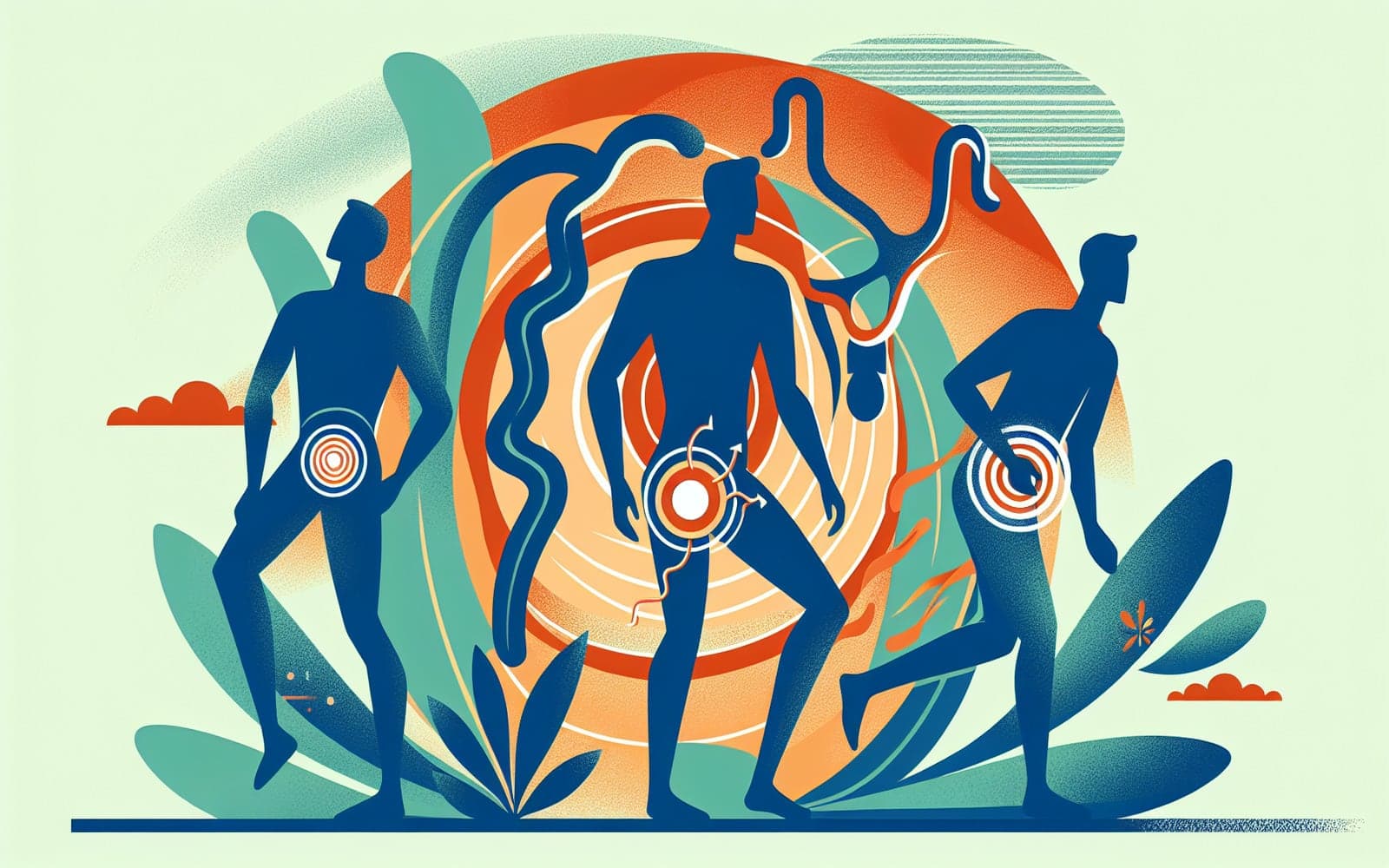Breaking the Cycle: Effective Treatments for Chronic Pelvic Pain in Men
Published: Jul 12, 2024
Chronic Prostatitis/Chronic Pelvic Pain Syndrome (CP/CPPS) can be a frustrating condition, but there's hope. A variety of treatments are available to help manage symptoms and improve quality of life.
Contents
Medication Options
Doctors often start treatment with medications. Alpha-blockers, which relax muscles in the prostate and bladder, are a common first choice. Anti-inflammatory drugs can help reduce pain and discomfort. Some men benefit from medications that target nerve pain, like pregabalin. It's important to work with your doctor to find the right combination for you.
Physical Therapy and Exercise
Many men with CP/CPPS have tension in their pelvic floor muscles. Physical therapy can help relax these muscles and reduce pain. Techniques might include stretches, massage, and biofeedback. Regular aerobic exercise has also been shown to improve symptoms in some men.

Mind-Body Approaches
Stress and anxiety can worsen CP/CPPS symptoms. Cognitive behavioral therapy (CBT) can help men manage these emotional factors. Some studies have shown that acupuncture may provide relief for some patients. Relaxation techniques like meditation or yoga might also be beneficial.
Frequently Asked Questions
Generally, no. CP/CPPS is not caused by bacteria.
It varies, but improvement often takes several weeks to months.
Some men find certain foods worsen symptoms, but evidence is limited.
Key Takeaways
The most effective treatment for CP/CPPS often involves a combination of approaches tailored to each individual.
Ready to explore treatment options for CP/CPPS? Chat with Doctronic to learn more about what might work best for you.Related Articles
References
Thakkinstian A, Attia J, Anothaisintawee T, Nickel JC. α-blockers, antibiotics and anti-inflammatories have a role in the management of chronic prostatitis/chronic pelvic pain syndrome. BJU Int 2012; 110:1014.
Anderson RU, Wise D, Sawyer T, et al. 6-day intensive treatment protocol for refractory chronic prostatitis/chronic pelvic pain syndrome using myofascial release and paradoxical relaxation training. J Urol 2011; 185:1294.
Always discuss health information with your healthcare provider.

